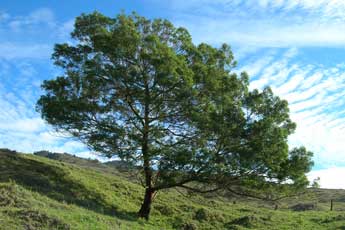Piton
- [Geology] A volcanic peak, especially a steep-sided dome, in the West Indies and other French-speaking regions.
- [Mountaineering] A strong iron spike with an eye at one end through which a rope can be passed.
Piton
Time for another nice word …
Mendicant
OK, guys & gals, time for another unusual or interesting word. Today we have:
 Alectryomancy
Alectryomancy
Divination by means of a cock (preferably a white rooster) with grains of corn, usually by recording the letters revealed as the cock eats kernels of corn that cover them.
From the Greek ἀλεκτρυών (alectryon) cock + µαντεία (manteia) divination.
Pavonine

From the Latin pāvōn-em peacock.
 Gugglet, or as the OED would have it more correctly Goglet.
Gugglet, or as the OED would have it more correctly Goglet.
A long-necked vessel for holding water, usually made of porous earthenware, so that the contents are kept cool by evaporation.
From the Portuguese gorgoleta, ‘an earthen and narrow-mouthed vessel, out of which the water runs and guggles’. Also possibly the French gargoulette which has a similar meaning.
The OED records the first English use in 1698.
Kudos to my local auction house’s catalogue for teaching me a word I really didn’t know.
Ordure
From the French ordure, from ord filthy, foul, which is in turn from the Latin horridus horrid.
 Shittimwood
Shittimwood
The wood of the shittah tree (a species of acacia) from which the Ark of the Covenant and furniture of the Tabernacle were made.
[From the Hebrew shiṭṭīm, plural of shiṭṭāh; original meaning unknown]
 Callipygian
Callipygian
Having well-shaped or finely developed buttocks.
(In more modern parlance) having a nice bum.
From the Greek καλλίπῡγος, κάλλος beauty + πῡγή buttocks.
The Ancient Roman Statue Venus Callipyge is literally “Venus with the beautiful buttocks”.
Hat-tip: Steve Olle for reminding me of this superb word!
Postilion, postillion

Post chaise with postillion
Heterodox
 1. Not in accordance with established doctrines or opinions, or those generally recognized as right or ‘orthodox’.
1. Not in accordance with established doctrines or opinions, or those generally recognized as right or ‘orthodox’.
2. Holding opinions not in accord with some acknowledged standard.
3. An opinion not in accord with that which is generally accepted as true or correct.